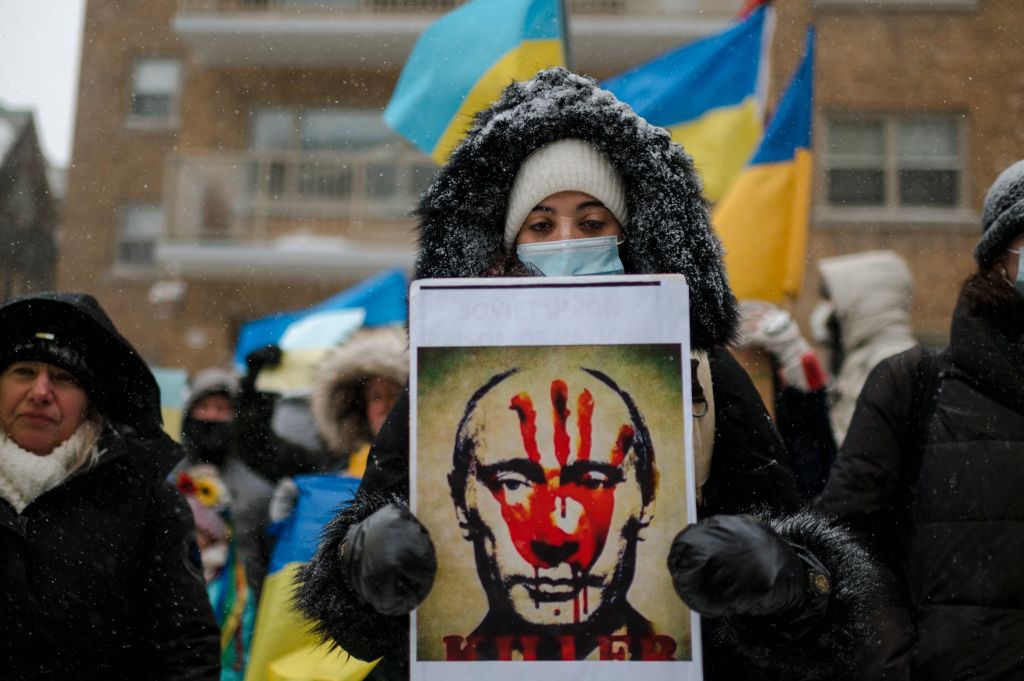Russia’s nuclear threat has worked

The war in Ukraine has reasserted the relevance of nuclear weapons as a major deterrent in global conflicts. For the first time since the end of the Cold War, a great power has publicly threatened to deploy tactical nuclear weapons. And the threat worked: the West has been carefully calibrating its arms supply to Ukraine in order to avoid giving Russia reason to resort to nuclear escalation. Russia’s unprovoked invasion of Ukraine wouldn’t have happened had Ukraine not surrendered its nuclear arsenal under the 1994 Budapest Memorandum on Security Assurances, which included American and Russian guarantees to respect and defend its territorial integrity.
Revolutionary powers such as North Korea and Iran have watched these developments closely. For Iran, a rising Shia power, its nuclear program represents an insurance policy against the surrounding Sunni powers, all allies of Israel and the United States. North Korea’s nuclear logic isn’t much different.
There are few realistic options for stemming the trend towards nuclear proliferation. One development that would make a difference would be for the five big nuclear powers to lead by example and start reducing their arsenals drastically. The obstacle here arises from the disparity between American conventional military might and that of China and Russia. For France and Britain, meanwhile, maintaining nuclear weapons is an issue of status.
If leaders of the calibre of Ronald Reagan and Mikhail Gorbachev—capable of overruling their respective security establishments—re-emerged, they could potentially lead such a non-proliferation movement. But such leadership doesn’t seem to be imminent.
Another possibility would be to establish a zone free of weapons of mass destruction in the Middle East. But that could happen only if agreements were reached on the major conflicts in the region, and Israel surrendered its supposed nuclear capabilities.
I’m not optimistic about any of these scenarios. Ultimately, however, whether a regime has nuclear weapons isn’t the main issue. It’s the nature of the regime that counts.
Ukraine made a mistake in entering negotiations with Russia at a very early stage of the war, when the impression was still that Russia’s military was unstoppable. A mutually harmful deadlock offers a better opportunity to reach a peace agreement. Unless Russia introduces nuclear weapons into the equation, we may be nearing such a deadlock, owing partly to the fact that the US and its allies have wisely calibrated their arms supply to prevent a Ukrainian defeat while not provoking Russia to escalate.
The Ukrainians should not enter negotiations if the price of admission is accepting Russia’s demand that they not join NATO. This should be a concession in a negotiating process, not a precondition to it.
That said, as I’ve argued recently, peace is about equilibrium and stability, not justice. The just outcome—Russia’s full withdrawal from Ukraine and reversal of its annexation of Crimea—would be political suicide for Putin and a tremendous setback for Russia’s international standing. Far from being a cooperative participant in a European security system, a defeated Russia, as a humiliated nuclear-armed superpower, would pose an enduring threat to it.
Western powers should be part of the peace process, not only because they are part of the conflict, but also because they are the ones with the power to compensate Russia for any concessions it makes. That compensation should come in the form of a European security system that addresses key Russian concerns and upholds the neutrality and territorial integrity of Ukraine, Moldova and Georgia. Finally, to deal with Ukraine’s dual identity, the ethnic Russian regions of Donetsk and Luhansk would have to enjoy significant autonomy within a federal state, as was stipulated by the 2015 Minsk II settlement.
For far too long, Europe has remained comfortably embedded in a ‘post-historical’ world, while outsourcing its security to American taxpayers. The war in Ukraine marks the end of the myth that history ‘ended’ with the end of the Cold War and the dissolution of the Soviet Union. It also vindicates the Latin adage, Si vis pacem, para bellum (‘If you want peace, prepare for war’). A strong and united NATO would help secure peace.
But any European security architecture that emerges from the Ukraine war must include buffer areas between Russia and NATO. Ukraine, which will probably have to abandon its aspirations for NATO membership as part of any peace settlement, should be one such zone. Sweden and Finland, with its 1,340-kilometre border with Russia, should be two more. The alternative is a long border in a permanent state of friction, war or the imminent threat of war.
For the foreseeable future, peace must be based on disengagement. The end of Europe’s dependence on Russian energy would contribute to peace, as it would force Russia to diversify its economic model, increase Russia’s stake in global stability, and drive the country to become a more active participant in the global economy.